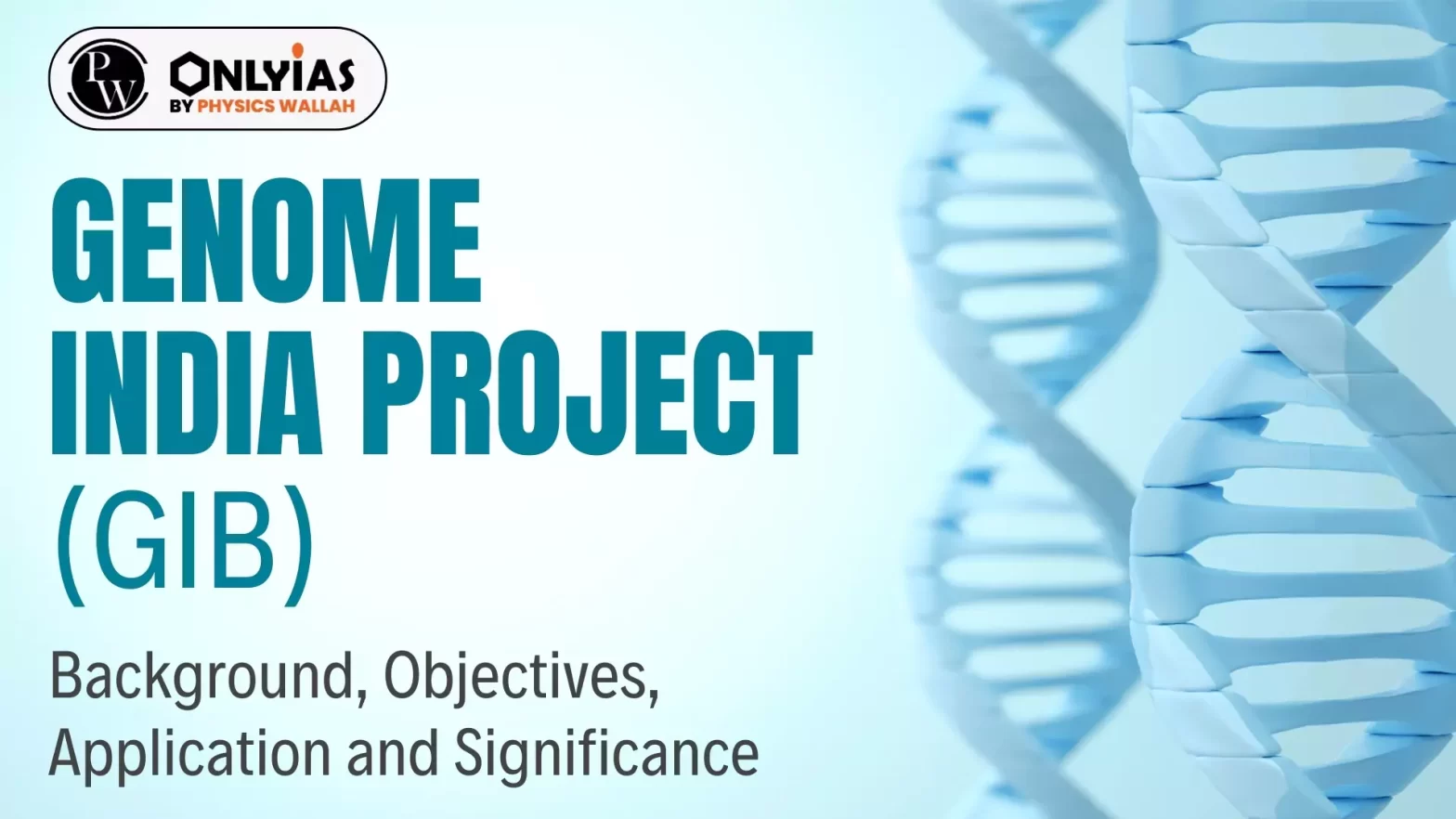Context:
This article is based on the news ‘‘10,000 genome’ project completed, says the government” which was published in the Hindu. The Department of Biotechnology (DBT) officially announced the completion of the “10000 Genome project”.
10000 Genome Project Completed
- It attempts to create a reference database of whole-genome sequences out of India.
- The samples were taken from 99 ethnic groups spanning 20 centers.
- The USA, UK, and China are the only countries that have programmes to sequence at least 1,00,000 of their genomes.
Background of Genome India Project
- The initiative is funded by the Department of Biotechnology (DBT) to sequence at least 10,000 Indian genomes in phase 1.
- Objective: To develop predictive diagnostic indicators for several high-priority diseases and other uncommon genetic disorders.
- In phase 2, the project would collect genetic samples from patients with three broad categories – Cardiovascular diseases, Mental illness, and Cancer.
About the Genome India Project
- Research Led By: The Genome India Project (GIP) is a research initiative led by the Bangalore-based Indian Institute of Science’s Centre for Brain Research and involves over 20 universities nationwide.
- Objective: To gather samples, compile data, conduct research, and create an “Indian reference genome” grid.
- Applications: Advances agriculture, biotech, and healthcare for diseases like cancer and diabetes.
What Is the 10000 Genome Project?
- Initiative of: Department of Biotechnology
- Aim: To sequence 10,000 Indian genomes.
- Objective: Understanding variations in Indian genes to predict diagnosis.
What Is Genome Sequencing?
- All organisms (bacteria, vegetables, mammals) have a unique genetic code, or genome, composed of nucleotide bases (A, T, C, and G).
- One can identify its unique DNA fingerprint or pattern if one knows the sequence of the bases in an organism.
- Determining the order of bases is called sequencing.
- Whole genome sequencing is a laboratory procedure that determines the order of bases in the genome of an organism in one process.

How Does Whole Genome Sequencing Work?
- Scientists conduct whole genome sequencing by following these four main steps:
- DNA Shearing: Scientists begin by using molecular scissors to cut the DNA, which is composed of millions of nucleotide bases (A’s, C’s, T’s, and G’s), into pieces that are small enough for the sequencing machine to read.
- Adenine (A), Cytosine ©, Guanine (G), and thymine (T) are the nucleotide bases.
- DNA Barcoding: Scientists add small pieces of DNA tags, or bar codes, to identify which piece of sheared DNA belongs to which bacteria. This is similar to how a bar code identifies a product at the grocery store.
- DNA Sequencing: The bar-coded DNA from multiple bacteria is combined and put in a DNA sequencer.
- The sequencer identifies the A’s, C’s, T’s, and G’s, or bases that comprise each bacterial sequence. The sequencer uses the bar code to keep track of which bases belong to which bacteria.
- Data Analysis: Scientists use computer analysis tools to compare sequences from multiple bacteria and identify differences. The number of differences can tell the scientists how closely related the bacteria are and how likely they are to be part of the same outbreak.
Significance of the 10000 Genome Project
- Helped Researchers Identify Genetic Variants: An analysis of just 5,750 genomes has helped researchers identify 135 million genetic variants in India.
- Uncovering Disease History: The data repository can help scientists identify diseases indicating variants.
- Identify Resistance-Indicating Variants: It can also help identify resistance-indicating variants, such as genes that might make certain medicines or anesthetics ineffective in certain populations.
- It can also help identify targets for diagnostics and therapeutics.
- Establishment of IBDC: The entire dataset will be stored at the Indian Biological Data Centre (IBDC) and made available as a digital public good or research.
- Inaugurated in 2022, the IBDC is the country’s only databank.
- Before that Indian researchers had to host their biological datasets on American or European servers.
Also Read: Casgevy And Lyfgenia: CRISPR-Based Gene Therapies
News Source: The Hindu and CDC
![]() 28 Feb 2024
28 Feb 2024

